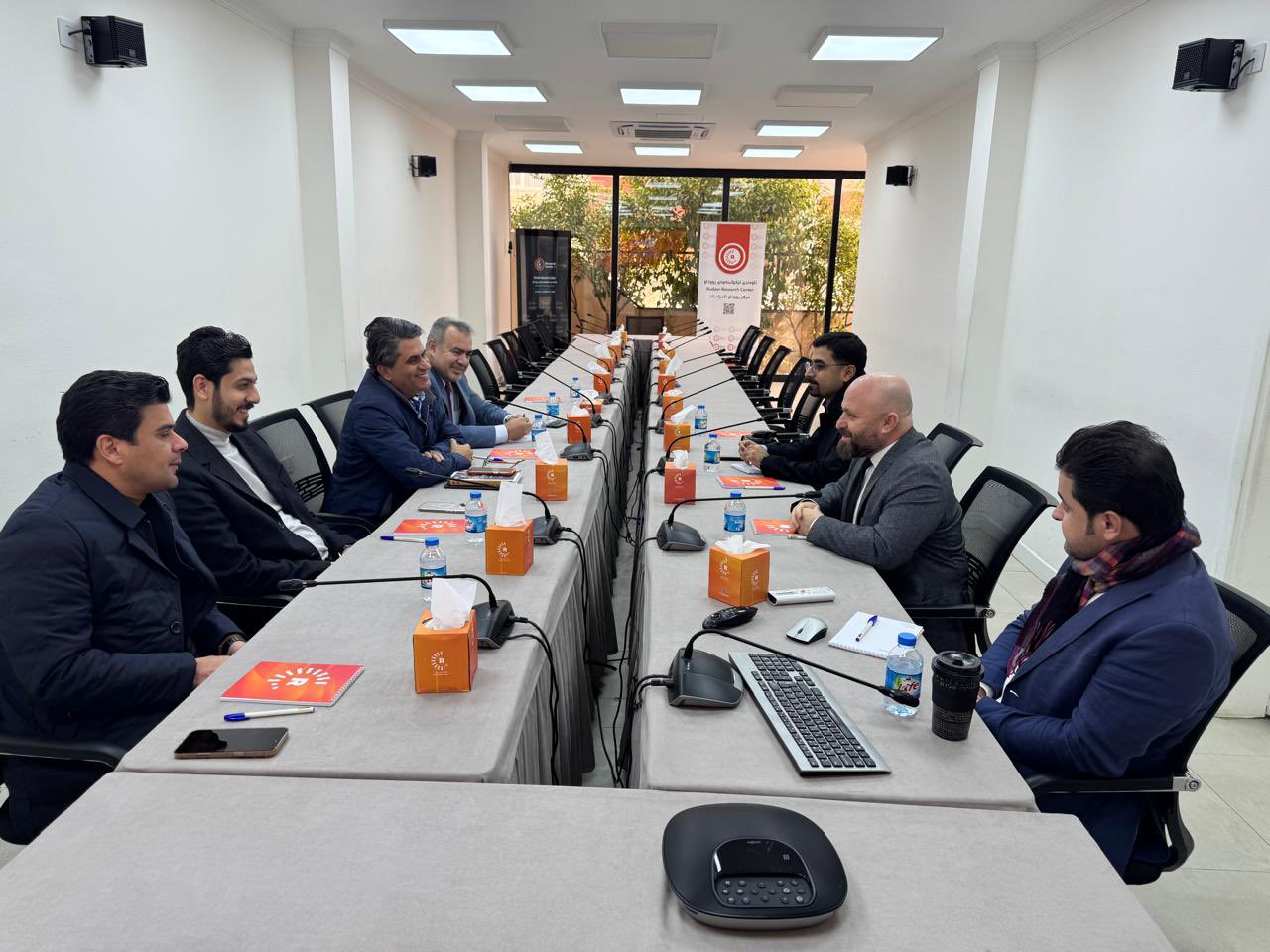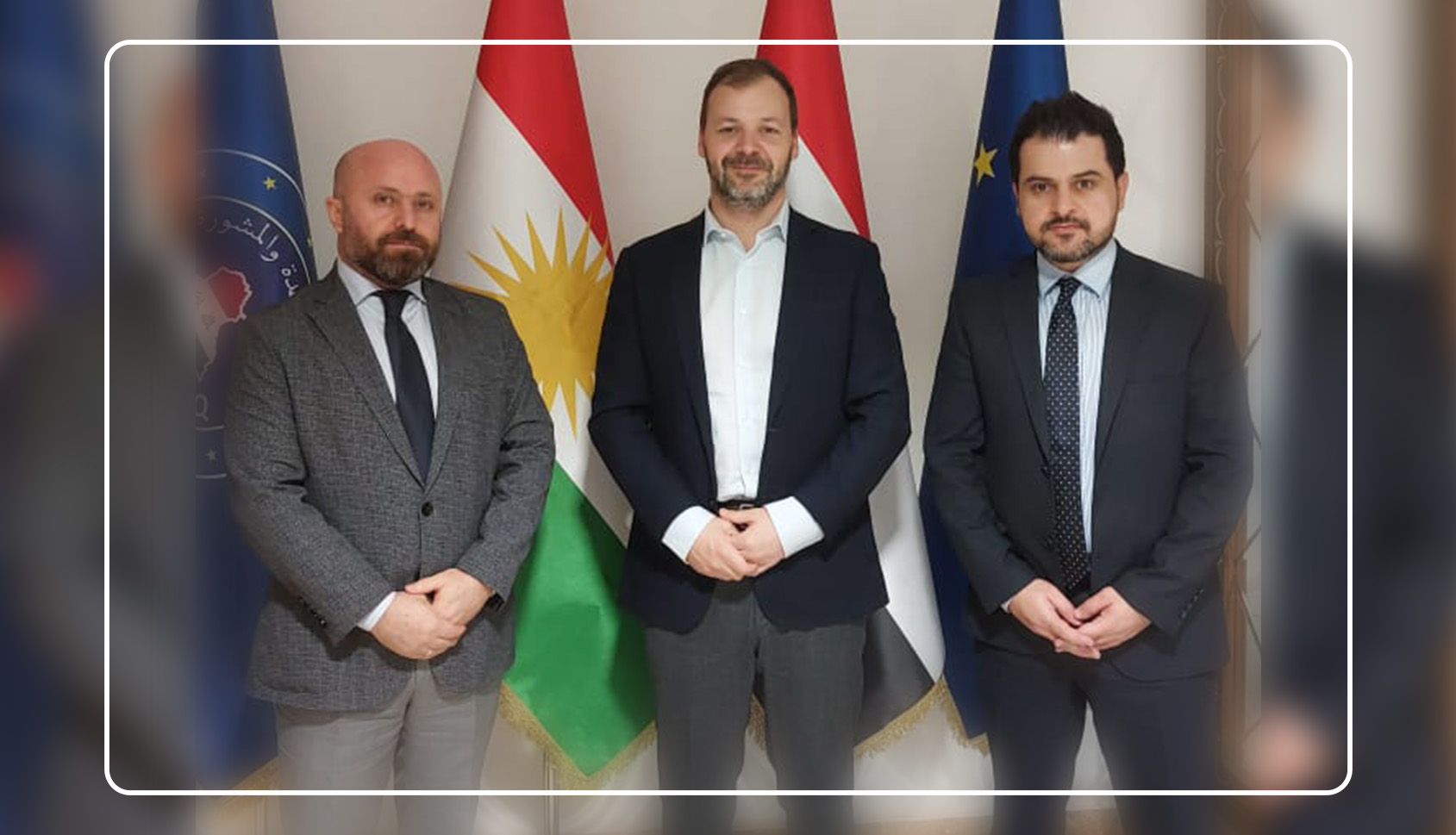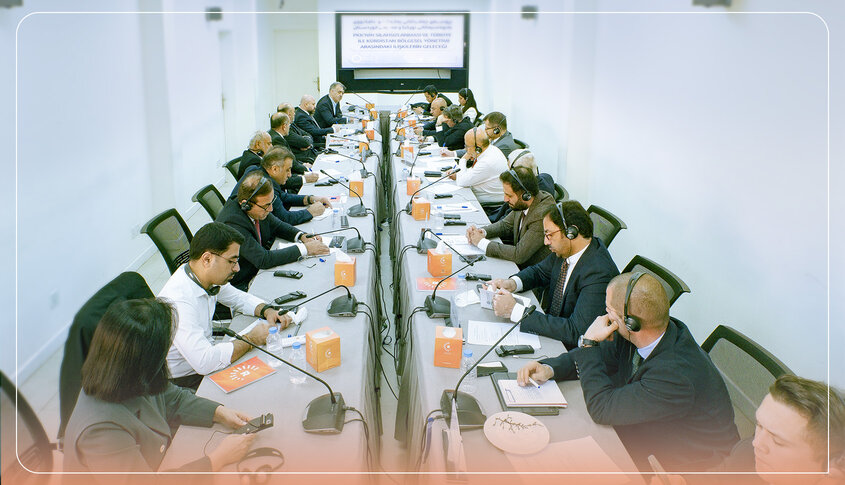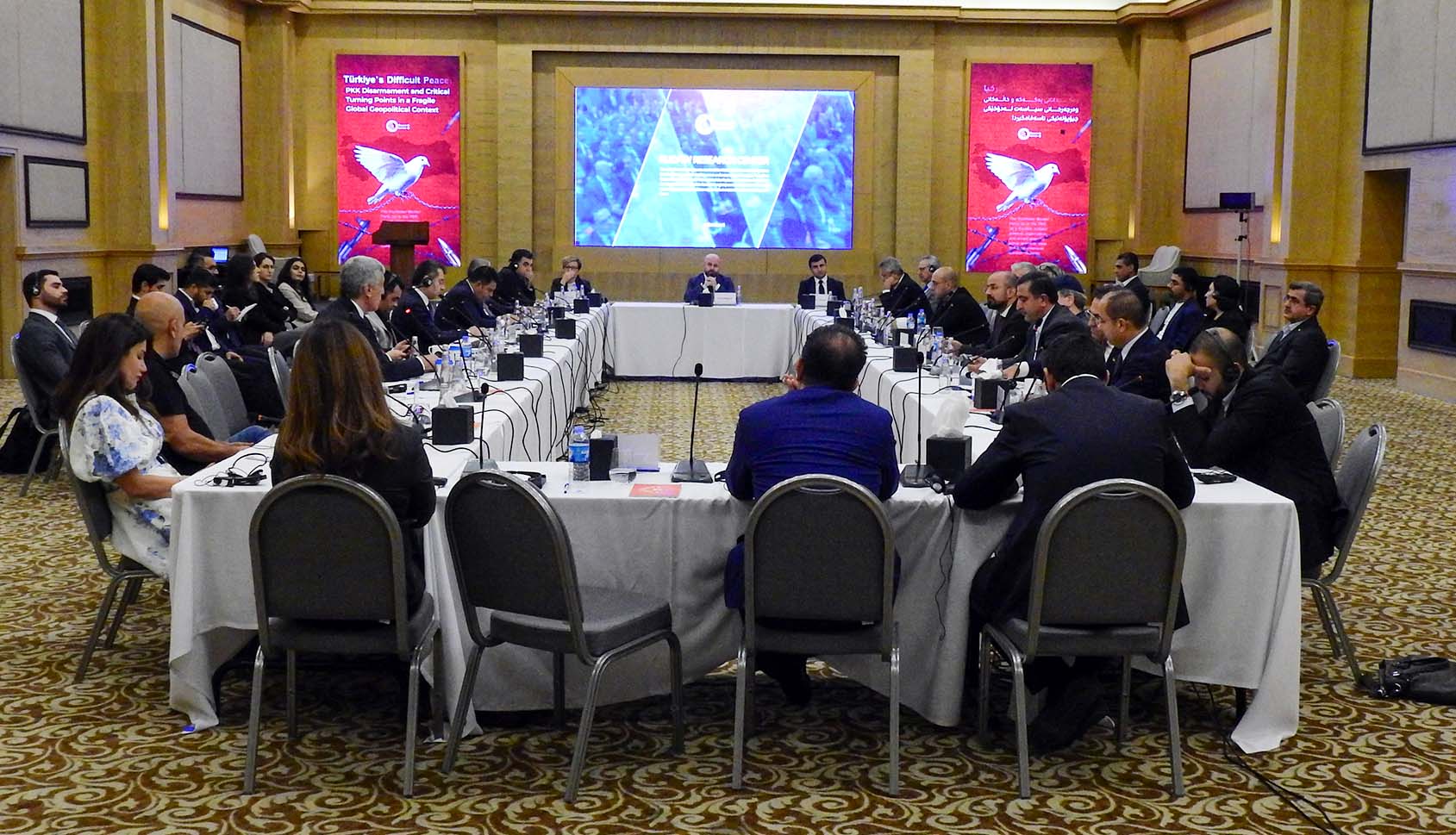Participants
Dr. Sanam Vakil, Deputy director and senior fellow, Middle East and North Africa Program, Chatham House
Dr. Mahmood Pargoo – Research fellow at Middle East Forum at Alfred Deakin Institute
Moderator: Ali Kurdistani -RRC
Ali Kurdistani: Thank you for joining us in this virtual event about the impact of new elected Iranian president on their foreign policy. First of all I would like to give you each 10 minutes to speak on three questions: Who is making Iranian foreign policy supreme leader or president? How the new president will affect US-Iran talks over nuclear program? How Raisi’s ‘’dark reputation’’ will affect Iranian position in engaging with the western world in the next 4 years?
Dr. Sanam Vakil: The Iranian political system is important to understand because is divided and its hybrid system divided between an elected republican system that is based on a European Constitution and that is balanced by a political model. That is religious that has overarching Authority placed in the hands of the faqih of Iran’s supreme leader and this balance or imbalance it’s in the political system is often confusing to understand where the power lies. But it’s very clear. If you, if we had a graph of this system, Iran’s supreme leader has appointment and decision-making Authority, that supersedes all individuals and all institutions in the Islamic Republic and particularly Ali Khamenie who has been supreme leader since 1989 benefited from revisions of the Iranian constitution 1989 that afforded him greater Authority and influence in a political system. So, this structure ultimately very much inhibits Iran’s president from independent decision-making, particularly in the foreign policy decision-making structure. Iran has a consensus decision-making process that is managed by the Supreme Leader and foreign policy decisions are prominently made in a body known as the Supreme National Security Council. This body was created in the 1989 and beyond constitutional reform period. The individuals that sit in the Supreme National Security Council effectively bring together. The heads of all of the institutions within the political system from the guardian Council to the head of the IRGC, and the armed forces, the speaker of the parliament, the president representatives from the Supreme Leader’s office and members of the cabinet appointed by the president, and it’s in this body that foreign policy issues are debated. And policy recommendations are presented to the Supreme Leader. So ultimately he has the final say on the strategy as well as the Tactical decisions taken by the Islamic Republic. So while there is this edifice of division, clearly on critical National Security interests, the system comes together and drives a consensus approach on foreign policy. Now Iran’s president does have some degree of influence because of course, he appoints the foreign minister, the form disposition, of course, requires the approval of the supreme leader so you can again see that there is a supervisory situation that doesn’t give the president full autonomy. But because the President also has as members of his cabinet representative represented in the Supreme National Security Council, the executive branch has slightly more presence and slightly more voice. So obviously they can influence the direction of Iran’s foreign policy. But it’s really important to note that the president doesn’t have independent Authority or autonomy but it’s very much guided through this consensus-building process and ultimately Ibrahim Raisi is not an individual thus far that has made policy pronouncements or laid out his approach on really many issues. Independent of Iran’s supreme leader. I see him very much like a mirror image of a khamenie so much of the foreign policy direction that he has laid out through his campaign. But also just yesterday in his first presidential press conference really reflects the views of the supreme leader on the JCPOA he has pragmatically stated that he supports Iran’s return to the JCPOA and I think that the reason he has done. So is twofold. First of all, reducing security-oriented tensions with the International Community. I think in the context of domestic challenges is a huge priority for Raisi’s Administration. Secondly, Raisi and is tied to the first issue would benefit from sanctions relief and the increase of trade and liquidity in the Iranian economy would enable Raisi to Prioritize economic issues because ordinary Iranians have borne, The Lion’s Share of economic pressure over the past few years but also Beyond secondly, Raisi, see has been talking about rehabilitating Iran’s frayed Regional ties, particularly with the Gulf Arab states. And I think this is an important shift that has reflected, sort of changes taking place already in the region Iran and Saudi Arabia, are engaged in bilateral dialogue, Iran and the UAE have engaged in bilateral dialogue. So Raisi, you will be capitalizing on these shifts, thirdly, he supports Iran’s shift or looking East policy. That is also supported by Kahmeine and this will continue In to grow after the release of the 25-year cooperation agreement between Iran and China. For example, lastly, I’ll just briefly say that Raisi, you know, hasn’t travelled very much outside of Iran. He’s also sanctioned by the US government. So, and he has a very skeptical view of the West and Western intentions visibly Iran. So, for that purpose, I think he has no choice but to prioritize Regional relationships. He’s been to Iraq and he has stated that he would like to improve and develop Iran’s relations with Iraq as well. So this is going to be the parameter of focus for Raisi and the steps that I think that his administration will take will be to rehabilitate the JCPOA simultaneously try to improve ties.
And tensions between Iran and its neighbors. And finally, prioritize economic Rehabilitation, none of these is easy steps, but if he does, pursue this path of the JCPOA deterrent and the economy, it paves the way for his administration to be, much more successful compared to the Rouhani Administration, which internally in Iran. It seemed to have really failed to meet its policy promises over the eight years. So perhaps, the bar is very low for Raisi . The expectation is also very low, I think inside the country for where his administration can go. So it’s highly likely that with these low expectations and with this High degree of popular apathy that is I think quite unprecedented. we haven’t seen such degrees and two decades in Iran. Raisi has a very open playing field to demonstrate some degree of progress. The question is, is he able to? Because he doesn’t have huge amounts of administrative experience, but, you know, we’ll see. We’ll see where he goes. I’m going to leave it there and passed the Baton to Mahmoud.
Dr. Mahmood Pargoo: Yes. Thank you so much, Sanam. Thank you. Ali and all my friends. In Kurdistan for arranging this meeting, you know, it’s a very important issue, I guess. And these days, everybody asked what’s going on in Iran’s foreign work, what will happen in Iran’s foreign policy with Raisi, and worldly powers of the president to set foreign policy as Sanam comprehensively stated president does not have kind fundamentally important substantive role in foreign policy setting, the policies in international relations legally and constitutionally the supreme leader sets of fundamental policies of this state including in foreign policy. So what there is, is this range of say, influence the president and observed through May Making negotiations to you know, consensus making and all of those you know a limited amount of you know, the power he has and as-Sanam said, one important Venom is supreme National National interest Council or National Security Council, which I guess six members are appointed by the president and another member Well-appointed by the supreme leader. And it needs to be negotiated by the president. So it means the president as the head of the council and as somebody who has influence in always six members out of their team members, he’s quite influential but as Sanam said it’s fundamentally important. It’s not about fundamental and Important policies of say, fundamental policies of this state, like, you know, relationship with us or other similar things in these cases supreme leader is crucial. But what is some clean leader? Also, he knows that he needs to negotiate, he needs to make consensus, because it’s the system in Iran, doesn’t work like North Korea or Syria, or, you know, for that matter, that supreme leader stand there and just pour there’s and everybody else becomes silent. It’s it needs consensus because exactly is a hybrid political system. We have So, but the number of changes but the domain that president can negotiate business. So while this, you know, introduction, Raisi I don’t think will change much of foreign policy, the rythoric will change, but general policies, these will remain the same but again Raisi is not like somebody who likes jalili or Ahmadinejad. They have their own kind of independent thinking and philosophies about the world, you know, Raisi is pragmatic politician, who cares too much about his domestic image as well because of the future of the prospect of leadership. People are talking about, and And the whole, you know, image he has tried in the last two-three years to shape that I’m not you know very hardliner extremist. You know politician on pragmatic, I am against corruption but I’m also concerned I mean religious so it’s a kind of so it has its own limitations to that you go too much about this.
Let’s talk about Iran –US relations. I think again, the problem we have here, it’s more about structural distrust between these two countries and Raisi or for that matter Rouhani or even probably other reformist can do little to change it. Unless we have really a very fundamental shift of policy from the whole systemically change. from Iranian side They we have this, you know, the background of the 1953 coup then they always refer to the previous experiences of negotiations with the US during Afghanistan War. They had very very positive cooperation with the
US in Afghanistan. Qasim Soleimani was there. They were helping each other and then what happened after that? George Bush has, you know put Iran in the axis of Evil after that. So it was very shocking for Iranians. Another similar thing happened in Iranian nuclear negotiations when Rouhani was doing this again after everything, almost was doing going to do this settle down, the US rejected, the third part, only the more important one was the JCPOA. After two years or something, of negotiations, you reached a deal and then Trump came and just fell apart. So so this kind of distrust hardly rooted in realities and partly also kind of ideology called and conspiracy theory kind of distrust exist in Iran. The Iran don’t trust the US they always think that US is trying to kind of is following or pursuing regime change even when it is involved in, you know, negotiations the back in the back you know in the back of their mind, it’s regime change. So just very suspicious almost similar, kind of Suspicion or mistrust goes on in the US. So in the US, you don’t have a very clear policy that you want to do this with Iran. We Trust always, there is mistrust and that’s why it’s mutual distrust from both sides it creates a situation that nobody in both parts. Have kind of clear imagination, what we expect from each other. So whenever they engage, it’s all because of emergencies and necessities. they are not ready even after all this, they not ready to engage in kind of fundamental, you know, negotiations about the important issues. So we really lack, you know, a kind of imagination about the future. What, how we are? How are we Imagining the future of Iran -US relations apart from solving this nuclear issue? Okay, so after that, what then, you know, all about an emergency in Iran Hardliners because they always think that the US is pursuing this regime change policy behind the scene, they never or ready to, you know, to start this kind of fundamental negotiations to solve the problem. you ask Iranians or you ask the US. Okay, let’s say to reach the kind of agreement about the JCPOA. what’s next? So what’s in the horizon? How do you see? How do you imagine? It’s just kind of, you know, we called Inshallah policy. Insha’Allah let’s see what will happen next. You know, in US people for 40 years now, they don’t say this. You know, they don’t verbalize, but for 40 years, they are the only imagine. Okay? Okay, let’s just pass this, you know, emergency issue. Then probably regime somehow some, you know, Miracle will happen, the regime will change. You know, the people were angry about the regime or something. in Iran similar kind of miraculous inshallah policy is going on. It appears that the shift of power now is toward Asia. Let’s see.






